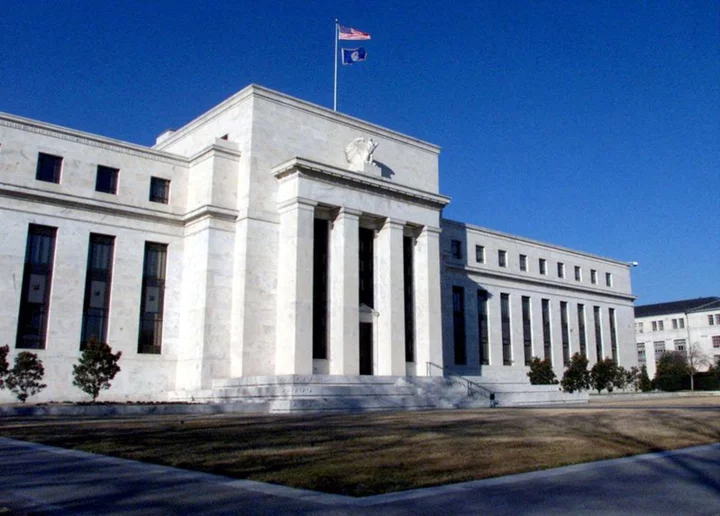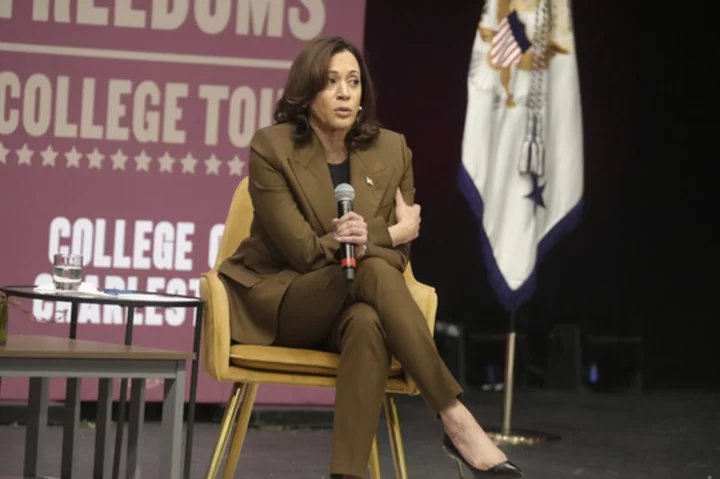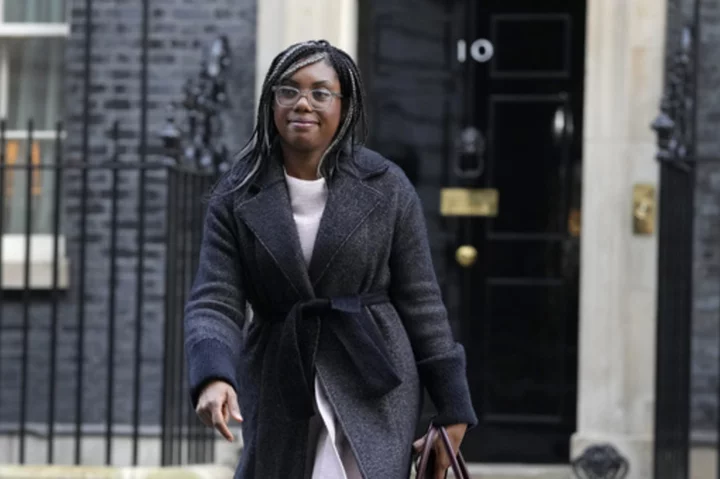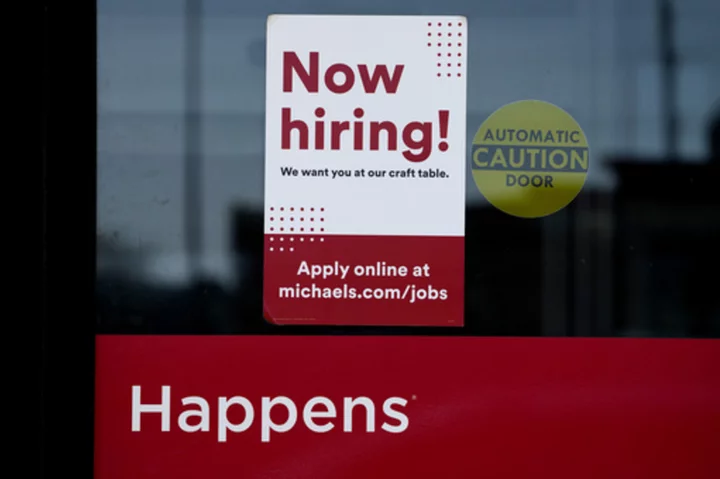By Prerana Bhat and Indradip Ghosh
BENGALURU The U.S. Federal Reserve is likely done raising interest rates, according to a strong majority of economists polled by Reuters, and a slight majority now expect the central bank to wait at least through end-March before cutting them.
With the world's largest economy defying nearly every negative forecast, and unemployment around a more than five-decade low, the median probability of a recession within a year fell to 40%, its first time below 50% since September 2022.
A 90% majority, 99 of 110 economists, polled Aug 14-18 say the Fed will keep the federal funds rate in the 5.25-5.50% range at its September meeting, in line with market pricing. A roughly 80% majority expect no further rate rises this year.
That contrasts with minutes from policymakers' recent deliberations, showing a split on whether one more rise might be required. After raising rates by 25 basis points last month, Fed Chair Jerome Powell kept options open for whether there would be a hike or a pause at the September meeting.
"Chair Powell says that decision will come down to upcoming data on growth and inflation, which we suspect will show enough signs of moderation to dissuade further rate hikes," noted Sal Guatieri, senior economist at BMO Capital Markets.
"Still, a move to lower the current target range of 5.25%-5.50% is unlikely to begin until about June 2024 given the expected sluggish path of inflation back to the target."
The Fed's preferred gauge of inflation has fallen sharply from a peak of 7.0% following 11 interest rate hikes from near-zero in early 2022. But it is not expected to fall to the 2% target until at least 2025, according to the poll.
Greater confidence the economy may skirt a major downturn has led to growing expectations rates will stay higher for longer, leading to convulsions in bond markets in recent days. The benchmark 10-year Treasury note yield is now only a few basis points off its cycle high in October.
Indeed, 23 poll respondents said rates will rise once more this year, with two saying twice more, to 5.75-6.00%.
While a majority among 95 economists who have forecasts through mid-2024 say rates will fall at least once by then, there is no majority for the timing of the first cut.
Just over half, 48 of 95, said the Fed will hold off cutting rates through end-March, with another 45, or 47%, saying its first cut will come in Q1. The other two still expect a cut in the fourth quarter of this year.
As recently as June, over a three-quarters majority of economists polled said the Fed would start by end-March.
Another 33 respondents, roughly 35%, forecast the Fed will go for its first rate cut in Q2, leaving 79 of 95, or 83% expecting at least one rate cut by mid-2024.
SHELTER COSTS TO COME DOWN
Much will depend on how quickly inflation will fall in the last stretch from 3.0% currently on the personal consumption expenditures (PCE) index to the Fed's 2% target.
Shelter costs - which account for around a third of the consumer price index (CPI) basket and are one of the main current drivers of inflation - will fall over the rest of the year, said nearly three-quarters of economists, 23 of 31.
That would help price pressures decline over the coming months, making the fed funds rate adjusted for inflation - the real interest rate - more restrictive if held unchanged.
Adjusting that real rate of interest would most likely be the reason for a rate reduction from the Federal Open Market Committee next year rather than a first move toward stimulus, said 21 of 32 economists in a reply to another question on what will prompt the first rate cut.
"We have long seen a high threshold for cutting because Fed officials will want to minimize the risk they could regret cutting if inflation stays too high," said David Mericle, chief U.S. economist at Goldman Sachs.
"The cuts in our forecast are driven by this desire to normalize the funds rate from a restrictive level once inflation is closer to target, not by a recession."
(For other stories from the Reuters global economic poll:)
(Reporting by Prerana Bhat and Indradip Ghosh; Polling by Pranoy Krishna; Editing by Ross Finley and Sharon Singleton)









